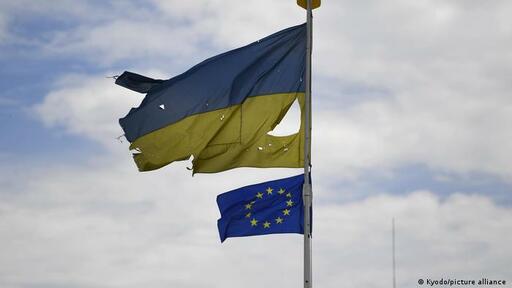On enlargement – Der Spiegel (Markus Becker, Martin Knobbe, Walter Mayr, Alexander Sarovic and Severin Weiland): ;
‘There is indeed a lot at stake. Just five days after the Russian invasion of Ukraine, Zelenskyy made it abundantly clear what he expected from the EU. "We are fighting also to be equal members of Europe," he told the European Parliament via video link on March 1, his face looking down at the representatives from screens set up in the Brussels plenary hall. "So do prove that you are with us. Do prove that you will not let us go. Do prove that you indeed are Europeans." The parliamentarians and European Commission President Ursula von der Leyen gave him a standing ovation.’
(…)
‘The trip to Kyiv gave the leaders an opportunity to smooth over a number of splits and disagreements, in full knowledge of just how divided Europe really is on the issue. Countries like Portugal, Spain, the Netherlands and Denmark have significant reservations when it comes to rapidly accepting Ukraine into the EU. For Poland and the Baltic countries, by contrast, the process couldn't go fast enough. As such, Germany, Italy and France must play the role of mediator, a reality the leaders discussed and agreed on during their train trip from Poland to Kyiv, sitting together in a lounge car for more than two hours, speaking at length and, it is said, enjoying more than a little wine. A train journey can also bring people together.’
(…)
‘Of the three, Macron is considered to be the greatest skeptic. To the displeasure of the government in Kyiv, Macron said recently that Russian President Vladimir Putin should not be overly humiliated and that the Ukrainians will have to negotiate with him at some point in the future. In a Europe Day speech in the European Parliament, Macron said that Ukraine "is already today a member of the heart of our Europe," only to then say that "the process allowing them to join would take several years – in truth, probably several decades."’
(…)
‘Of the three, Macron is considered to be the greatest skeptic. To the displeasure of the government in Kyiv, Macron said recently that Russian President Vladimir Putin should not be overly humiliated and that the Ukrainians will have to negotiate with him at some point in the future. In a Europe Day speech in the European Parliament, Macron said that Ukraine "is already today a member of the heart of our Europe," only to then say that "the process allowing them to join would take several years – in truth, probably several decades."’
(…)
‘In the global Corruption Perceptions Index compiled by Transparency International, the most recent version of which was released just before the Russian invasion, Ukraine is in 122nd place, between Niger and Zambia and not far ahead of Russia. "Grand corruption and state capture are still widespread in Ukraine," wrote the European Court of Auditors in a 2021 special report. Tens of billions of euros are lost annually as a result of corruption, the report noted, while 20 years of reform assistance from the EU has been ineffective. The Court of Auditors was also critical of the Commission, writing that it has frequently interpreted the situation in Ukraine "too loosely," which has led to "over-positive assessments."’
(…)
‘Meanwhile, some southern European countries, especially Portugal, fear financial losses. Southern European countries already feel disadvantaged compared to Eastern Europe in the distribution of funds, and the admission of half a dozen new members would divert even more EU funds to the east. In a recent interview, Portuguese Prime Minister António Costa said that granting candidate status wouldn’t solve any of Ukraine’s pressing problems and could instead raise "false expectations."
Yet others, especially Austria, have warned of the fatal signal that preferential treatment of Ukraine would send to the Western Balkans. It’s a concern that is shared in Berlin. If Ukraine were to be granted candidate status, "this could cause great frustration in the Balkans as long as there are no positive signals for the Balkan countries at the same time,” say sources in the German government.’
(…)
‘The war is forcing Europe to look at the big picture, says Latvian leader Kariņš, adding that the bloc has an historic opportunity to play a more powerful role in the world. Seizing the moment and making the necessary changes, he says, is necessary because it is existential for all of us.’
Read the article here.
Without the war no one would have talked about enlargement of the European Union, only those who wanted to commit suicide politically.
One of the many ironic consequences is that Ukraine might indeed become a member sooner than we expected. I’m in favor of that. But the excessive corruption in a country like Bulgaria is still haunting the EU.
And the system of one country, one vote will change.
Also, the larger the EU the less likely it’s going to become a federal state. Most likely is a two-tier-system, a hardcore EU, almost a federal state, surrounded by many loosely connected satellite states.
Exactly what Macron said, ‘a "European political community" as an additional step short of full EU membership.’ It offended some people, but it is realistic and the best of many other options that are worse.
